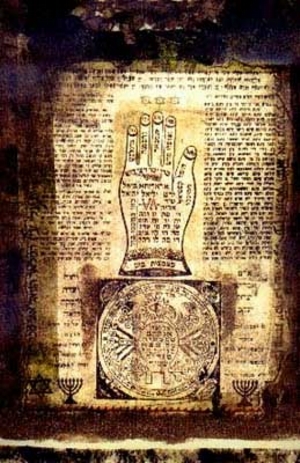 December 07
December 07
Jewish Mysticism in the University: Academic Study or Theological Practice?
by Boaz Huss
p. 2 of 2
 Moreover, there is certainly no common element between the so-called “mystical” cultural formations within Jewish culture, and the so-called “mystical” phenomena in other cultures. I do not see any significant commonality between a Kabbalist hearing the voice of the Shechina, a Catholic nun who is spiritually betrothed to Christ, or a Buddhist monk who aspires to attain Nirvana. The reductionist assumption that all these phenomena have a common denominator, which stands in stark contradiction to the self perception of the so called `mystics` themselves, is not based on any fact, other than the pre-existing assumption of the researchers.
Moreover, there is certainly no common element between the so-called “mystical” cultural formations within Jewish culture, and the so-called “mystical” phenomena in other cultures. I do not see any significant commonality between a Kabbalist hearing the voice of the Shechina, a Catholic nun who is spiritually betrothed to Christ, or a Buddhist monk who aspires to attain Nirvana. The reductionist assumption that all these phenomena have a common denominator, which stands in stark contradiction to the self perception of the so called `mystics` themselves, is not based on any fact, other than the pre-existing assumption of the researchers.
In other words, the problem with using the category “mysticism” in scientific study is not only that it is opposed to the perception of the subjects of the research, but also that is puts together many different cultural formations, which have no connection other than scholars’ assumption that behind them lies a common, universal phenomenon. This is already sufficient reason to avoid using the category “mysticism” in academic scholarship. However, even beyond the fact that the term is an inappropriate essentialist term, there is also a third problem: that the very use of it supports a particular theological position.
As I have argued above, the use of the term mysticism implies that people, in all cultures, sometimes experience an encounter with the Divine, or a transcendent reality. Using this assumption to categorize cultural formations and to establish academic fields that are devoted to their study is based on the assumption that the cause of various historical, cultural and social phenomena is the encounter with the Divine or the Transcendent reality. Any assumption that God, or a transcendent entity, or a metaphysical reality, is the cause of natural, historical, social or cultural events is a theological assumption, which is fundamentally opposed to the way that academic research is conducted in the study of natural science, the humanities, or the social sciences. Just as academic study in the natural sciences rejects the theory of intelligent design, and the academic study of history and social sciences cannot accept the will of God as a valid explanation for historical and social events, we, too cannot accept that encounters with the Deity or a transcendental reality can explain cultural phenomena— neither in Judaism, nor in other cultures. Thus, in my opinion, there is no place in the academy for the category “Jewish mysticism,” and consequently, no place for the debate whether to teach `Jewish Mysticism` in a theoretical or an experiential manner.
I would like to emphasize that I do not deny the existence of the texts and practices that scholars include in this problematic category; nor do I oppose their study as significant historical and social formations. I do not deny that people have indeed put their heads between their knees, whispered hymns and praises, repeated names of angels, spent time in solitude, or prostrated themselves upon the graves of saints; I do not doubt that the people who employed these techniques experienced exceptional events which they described as “Descending to the Chariot” [yerida la-merkava], prophecy [nevu’a], or “cleaving to Nothingness” [devequt be-ayin]. I do not reject the important studies that have examined these descriptions within their historical and social context. Rather, my argument is directed against the assumption that these are all expressions of “Jewish mysticism”, and against the research practices that ensue from this assumption, mainly the use of comparative and phenomenological methods that are common in the study of religions. I doubt that all these cultural formations, as well as other phenomena that modern scholarship perceives as “mystical” in various cultures (Christian, Muslim, Chinese, Japanese, Indian, American, and others) have any common factor (or factors) that is exclusive only to them, which justifies categorizing them as “Mystical” and establishing fields of study and methods of teaching and research, that are unique to them. [9]
The Teaching of Theology in an Academic Context
Although I am arguing that the term “mysticism” is theological in nature, and inappropriate as a category to be used in the framework of an academic research of historical and sociological phenomena, I would like to emphasize again that I am not opposed to theology, but only claim that it should not serve as the basis for academic study, whether in the natural sciences, the humanities, or the social sciences. The only question that remains is whether there is anywhere else to fit theological study into the academy, outside the fields of natural sciences, humanities, or social sciences.
As we all know, leading and prestigious universities in the United States and Europe have “divinity schools.” These schools teach theology, and train clergy. Should we establish such divinity schools, or programs for the teaching of spiritual studies and the training of Kabbalists within Israeli academic institutions? Should we set up academic frameworks which will deal with spiritual and theological questions (such as the nature of encounters with the Divine in various religions) and with mystical and religious practices— prayer, meditation, and the experiential study of Kabbalistic texts, on the assumption that these texts are an expression of some kind of universal mystical or spiritual experience?
The suggestion to set up study programs, departments, or schools for theology and spirituality raises two basic questions. The first is what types of theology or spirituality should be taught in academic frameworks: only Jewish theology, or also Muslim, Christian, Buddhist, New Age, and other theologies? Furthermore, when teaching Jewish theology and spirituality, should the “school for spirituality” teach liberal Orthodox, Reform, and Conservative theologies, or the doctrines and practices of Merkaz Harav, the Chabad movement, or the Kabbalah Centre? What methods of religious praxis should they employ: meditation and experiential reading of texts, or also prayer, writing amulets, and visiting the graves of saints? In brief, the question is: what criteria should be used to decide what theologies and spiritual practices belong in an academic context, and what should be the distinction between the theologico-spiritual activity in the academy and the theologico-spiritual activity in yeshivot or other non-academic institutions?
The second question, which is related to the first, is: what should be the criteria for evaluating students, or hiring and promoting instructors, in the framework of a theological school in the academy? What training should be required for an instructor of theology or spirituality? Is an academic degree in liberal arts or social sciences at all relevant for such an instructor, or should we prefer to hire theologians and spiritual masters, such as Yitzhak Ginzburgh, Ohad Ezrachi, or Philip Berg? On what basis should grades and degrees be granted to people who choose to attend a continuing education program in theology or spiritual in an academic context?
I have no answers to these rather rhetorical questions. As I have said, my field is the historical and social study of Kabbalah; I am neither a theologian nor a mystic. As an academic scholar of Kabbalah, I find it important to examine the theological assumptions that have shaped my discipline, and to critically analyze the category “Jewish mysticism” and the “mystification” of Kabbalah.
Footnotes
[9] For a similar argument concerning the term `Religion,` see T. Fitzgerald, `Playing Language Games And Performing Rituals: Religious Studies Ideological State Apparatus`, Method & Theory 15 (2003), p. 249.
Professor Boaz Huss teaches in the Department of Jewish Thought at the Ben-Gurion University of the Negev










